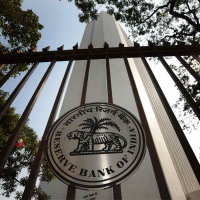New Payments Banks to Shake Up Indian Banking
 41 entities had applied for licenses (file photo: DNA)
41 entities had applied for licenses (file photo: DNA)
The Reserve Bank of India has provisionally cleared 11 entities to set up new 'payments banks'. These include India Post, top private business groups such as Reliance Industries and the Aditya Birla Group, telecom giants like Airtel and Vodafone, and a number of tech and finance companies.
Unlike 'universal banks' – as regular banks are called – payments banks can accept deposits up to a maximum of Rs 1 lakh ($1,529) and cannot grant loans. They can only deposit their money in government bonds. They can issue debit cards, but not credit cards. Apart from these requirements, payments banks will be able to provide all the services of a universal bank.
According to the Times of India, only two private business groups have been allowed to set up a bank since the first round of bank nationalization in 1969. Although most corporate houses have applied for a universal bank licence, only IDFC and Bandhan Microfinance were granted licences earlier this year.
Announcing the list of payments banks on Wednesday, the RBI said that it would be difficult to predict which model would be successful. The committee of the central board, which decided the final shortlist from among 41 applicants, chose entities with experience in different sectors and with different capabilities so that different models could be tried.
Customers who do not have the means to maintain a minimum balance will still be welcomed into these no-frills banks as revenue will be earned through transaction charges and not on the spread of interest between deposits and loans.
Payments banks are expected to rely on mobile and ATM infrastructure to provide banking services. Opening an account is expected to be like acquiring a pre-paid mobile number. Analysts expect intense competition, which should drive down charges for remittances, fund transfers and other banking transactions.
"The in-principle approval granted will be valid for a period of 18 months, during which time the applicants have to comply with the requirements under the guidelines and fulfil the other conditions as may be stipulated by RBI," the central bank said in a statement.
Once the applicants have fulfilled the conditions, the RBI would then grant a banking licence.
RBI governor Raghuram Rajan hopes payments banks will improve technology use across the country’s financial sector, while allowing the poor who transact only in cash to take their first step into formal banking.
“This is a really big change, and one that can take banking in India to the next level,” said Shinjini Kumar, head of banking at PwC in India.
“Policymakers think the old methods of expanding the system aren’t working and something new is needed, led by technology. The fact that they [the RBI] have chosen people with deep pockets and strong technology is a good sign,” he told the Financial Times.
- Karan Singh
To Learn More:
Banking revolution on cards: RBI clears 11 payments banks (Times of India)
India shakes up financial sector with payments bank licences (by James Crabtree, Financial Times)
Payment Banks promise to be a game-changer: Here is why (Indian Express)
Payments banks: With India Post getting RBI nod, India’s biggest bank for poor is in the making (by Rajesh Pandathil, Firstpost)
- Top Stories
- Controversies
- Where is the Money Going?
- India and the World
- Appointments and Resignations
- Unusual News
- Latest News
- India College Chain’s Expansion into U.S. Draws Opposition from Massachusetts Officials over Quality of Education
- Milk Shortages in India Tied to Release of New Movies Featuring Nation’s Favorite Stars
- Confusion Swirls around Kashmir Newspaper Ban in Wake of Violent Street Protests
- Polio-Free for 5 Years, India Launches Vaccine Drive after Polio Strain Discovery
- New Aviation Policy Could Increase Service, Lower Ticket Prices






Comments